Stay in Your Lane, Elf
‘Shmelf the Hanukkah Elf,’ a new picture book about one of Santa’s helpers who learns about the traditions of Hanukkah, takes the wrong approach to educating children about the holidays
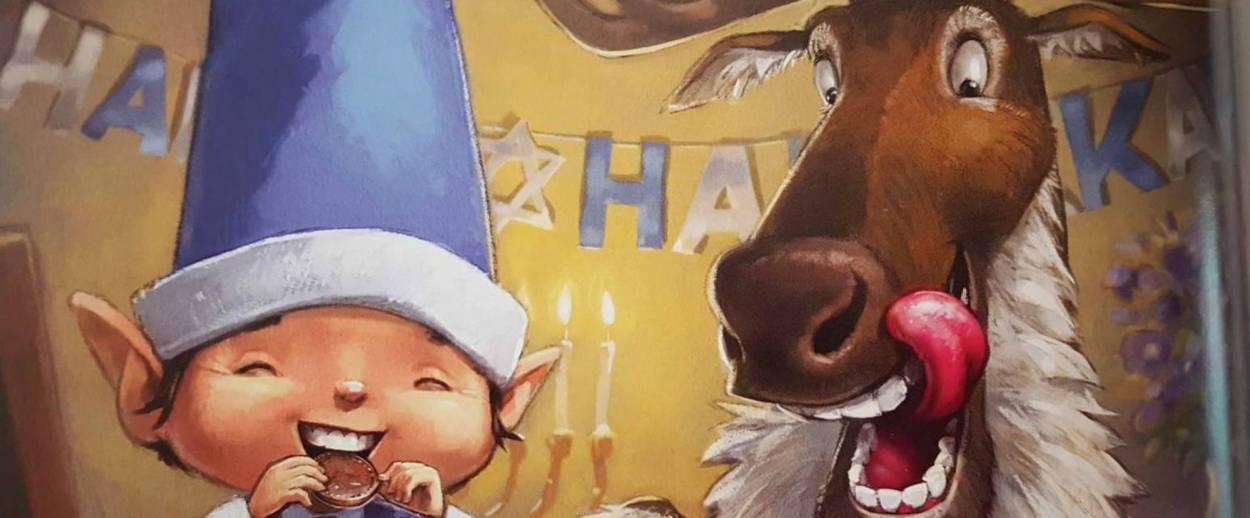
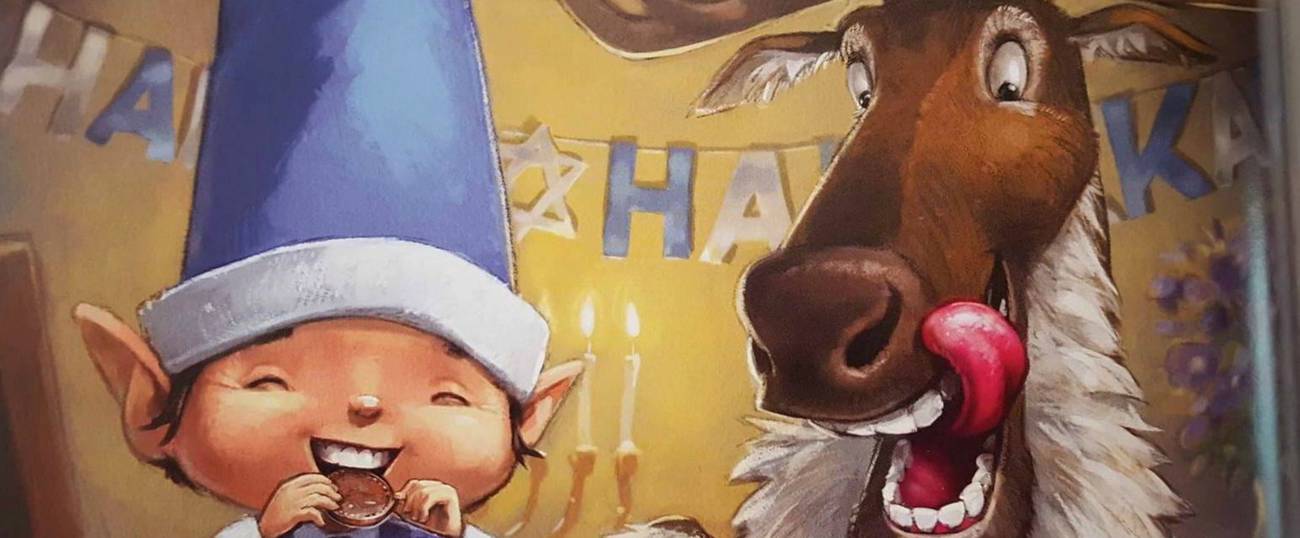


Joining the ranks of The Mensch on the Bench andMaccabee on the Mantel—Hanukkah books with attendant plush toys—is Shmelf the Hanukkah Elf. This new picture book, written by Greg Wolfe and illustrated by Howard McWilliam, dropped September 6. It should be dropped permanently, preferably from a great height. Into a river.
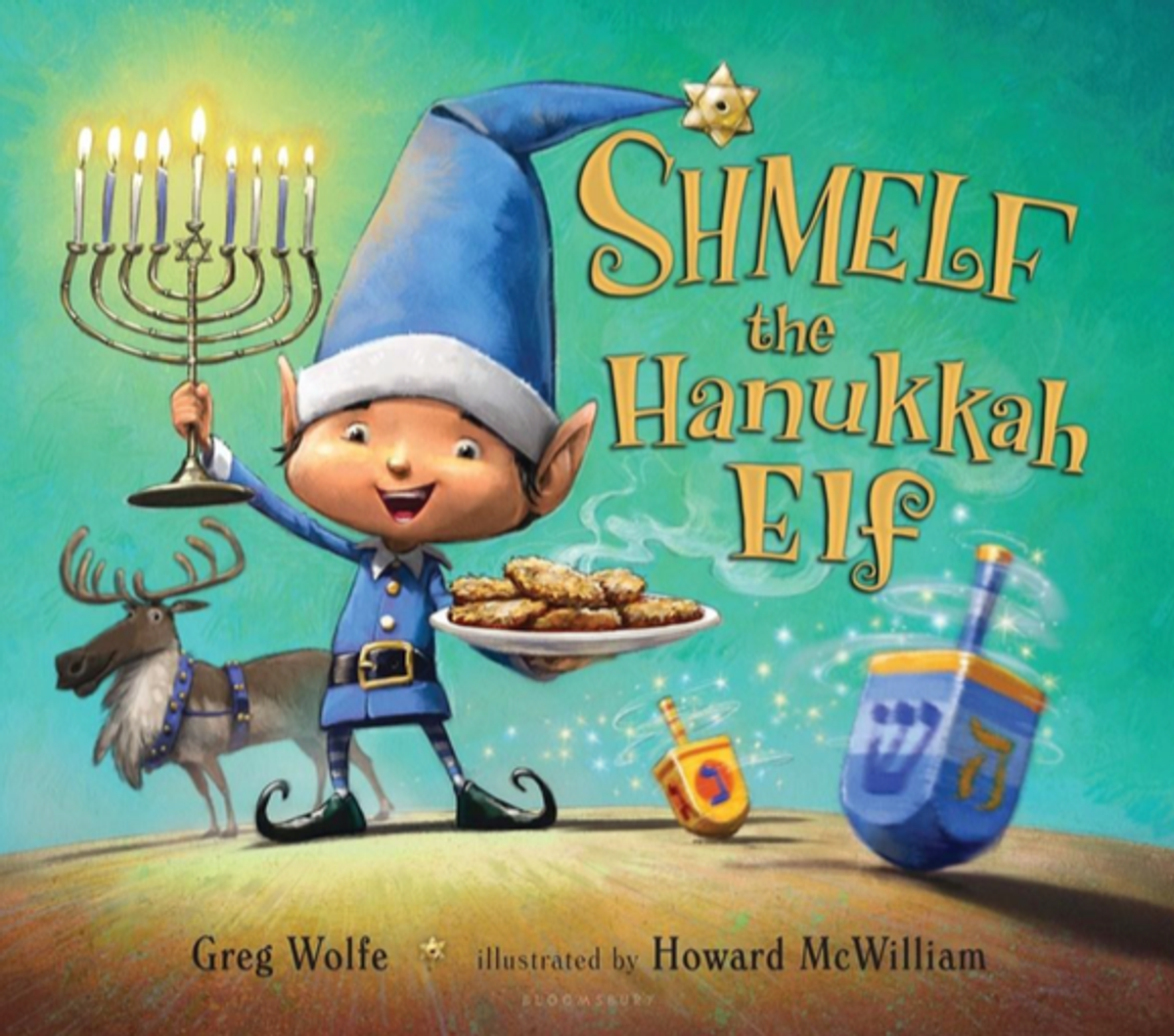
Here’s the story, such as it is. Shmelf is doing his thing in Santa’s workshop when he sees a list of kids who have been nice but are not going to get any presents from Santa! He runs to the head elf, who tells him,
Of course you don’t know, since you’re still quite newish,
But the kids on this list are actually Jewish.
The head elf tells him that Jewish parents, not Santa, give their kids gifts. The junior elf is distraught.
Shmelf returned to his desk; his mind was quite shaken—
Kids with no Christmas? He must be mistaken!
So he goes to spy on some Jews to see for himself. He learns that they get presents EVERY NIGHT of their holiday. He sees some hot latke action and some dreidel playing and candle lighting and he hears a story of a miracle of Hanukkah (involving some oil and a nebulous battle of some sort), and he reports back to Santa about what the Jews are up to.
“Good Shmelf,” chuckled Santa, “it fills me with joy
To see how you care for Jewish girls and boys,
It shows me that you are much more than a clerk
And so, I will task you with this special work.”
Santa sends him out in a blue and white outfit in a sled with a big Jewish star on the front, pulled by a reindeer named Asher. And from now on, Shmelf will come to visit you every Hanukkah to “make sure your latkes are crispy and thin / Your menorahs burn brighter / and your dreidels win.”
Bite me, Shmelf. I like my latkes thick. Stuff that in your stocking, along with your poorly scanning rhymes.
Last week, Rachel Kamin—a smart librarian in Highland Park, Illinois, and the former chair of the Sydney Taylor Book Award Committee—posted a review of Schmelf on Amazon. She wrote, “Shmelf the Hanukkah Elf might be the most insensitive, inappropriate, disrespectful and offensive picture book I’ve ever seen.” Instantly the trolls of Amazon descended upon her, shrieking about her humorlessness and tiresome belief that anti-Semitism is everywhere (she never claimed the book was anti-Semitic) and inability to see that this is just a children’s book. Some of the comments have since been reported and deleted.
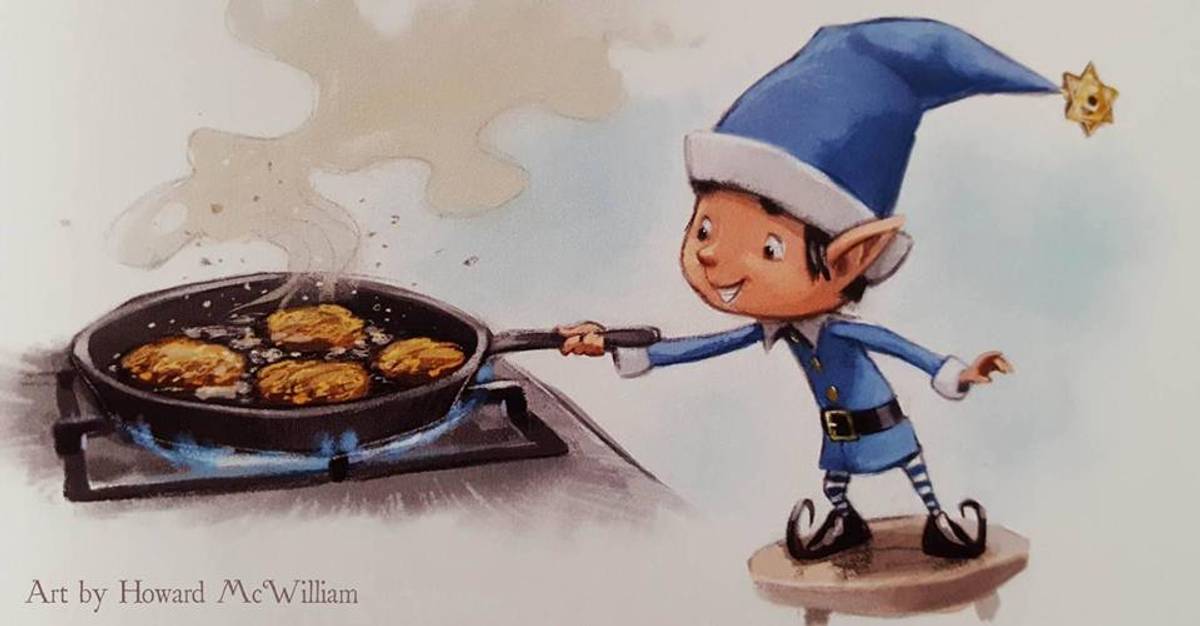
People. I am here for Rachel. A children’s book is never just a children’s book. It is more important than a book for grown-ups, because it has much more power. And excuse me, you do NOT tell a woman or a Jew to “lighten up.”
Rachel’s problems with the book are also mine. First of all, the Jewish family in the story is perfectly happy not celebrating Christmas. And they would have gotten away with it, too, if it wasn’t for that meddling elf! But no, Shmelf and Santa have to go stick their faces in and get involved in the Jews’ rituals anyway, because the Christmas spirit is for everyone! Yeah, stay in your lane, Santa.
Furthermore, Santa is not a secular figure. You can go ahead and tell me he represents the spirit of giving, but choosing to see him as divorced from his origins as Father Christmas and St. Nicholas is YOUR mishegas. If you yearn to turn a holiday celebrating Jesus’s birthday into a celebration of presents (the way this book clearly views both Christmas and Hanukah), knock yourself out, but this is not only revisionist history but bad values. Holidays should be about history and group identity, not some nebulous “spirit of the season” and—let’s be real here—the accumulation of material objects.
Wait, I’m just getting started. Pumping up Hanukkah, a minor holiday, to compete with the BIRTH OF CHRISTIANS’ LORD is wrong-headed. Christmas is a big megillah! For Jews, the equivalent might be the High Holidays, Passover, Shavuot, or Sukkot. Have some cheesecake! Build a hut! Find the afikomen! Dip a farshtunkiner apple in honey! DO NOT GO AROUND CO-OPTING OTHER PEOPLE’S TREES. (Hanukkah bush, my great big Jewish butt.) It’s particularly rich that the actual historic story of Hanukkah (as opposed to the lovely fairy tale of a tiny vial of oil lasting for eight days) is that of Jews fighting stubbornly against the loss of Jewish identity and the pressure to assimilate into Hellenistic culture. (Bitter irony here, Shmelf.)
Also, Shmelf? Why are you not bothering the Hindu, Muslim, and atheist children?
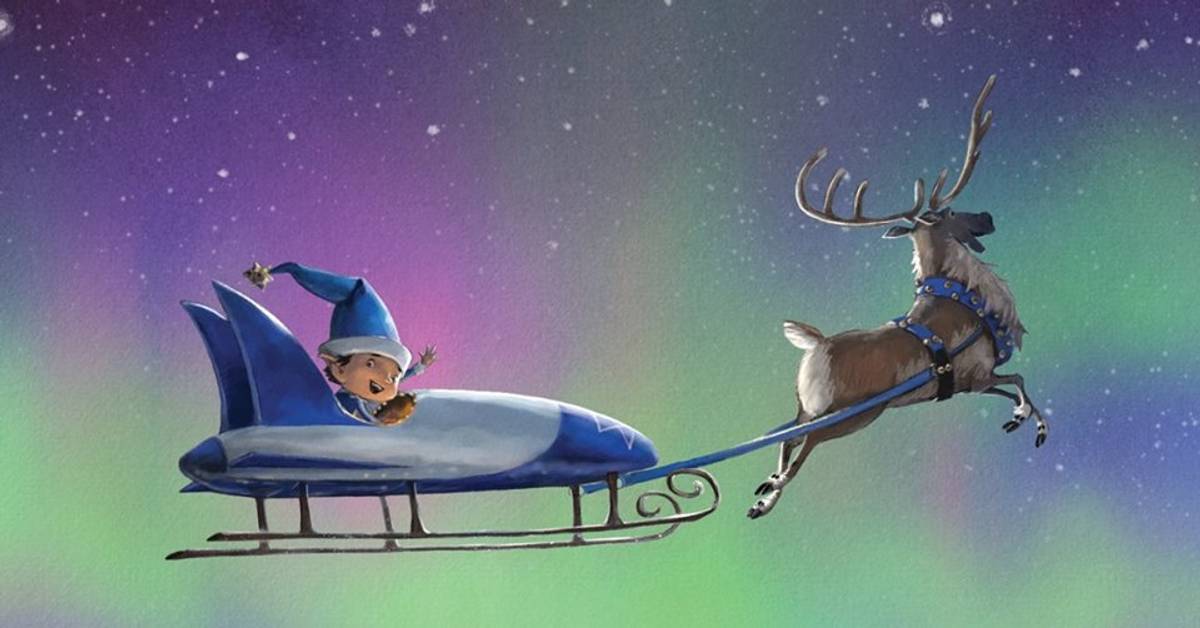
I am sympathetic to parents and kids who feel a little bereft at Christmas. I understand wanting your kid to feel included. The reason I enjoyed the picture book Dear Santa, Love Rachel Rosenstein was that it acknowledged that, yeah, sometimes you feel left out. This is an important parenting lesson, too: We have to let kids sit with disappointment and not rush in to fill every bit of discomfort with trumped-up good feeling.
I am even more sympathetic to families of intermarriage that have to figure out how to wrangle this tough time. To you I say, educate yourself on both faiths, keep Christmas and Hanukkah separate, inform your kids of the backstory of both, and stop trying to compete with Christmas. When you’re being Team Jew, pump up Shabbat and other holidays. When you’re being Team non-Jew, do Christmas qua Christmas.
And listen to the new episode of librarian Heidi Rabinowitz’s “Book of Life” podcast, which critiques the book. Heidi’s recommendations for non-Shmelf book choices include The Latke Who Couldn’t Stop Screaming by Lemony Snicket (it is seriously brilliant), Chanukah Lights Everywhere by Michael Rosen, and Daddy Christmas and Hanukkah Mama by Selina Alko. Because if Jewish families actually start leaving out gelt and a latke for an elf, I’m gonna stab a candy cane in my eye.
Previous: A Flower Girl Walks Down the Aisle at a Same-Sex Wedding
The Best Jewish Children’s Books of 2015
Marjorie Ingall is a former columnist for Tablet, the author of Mamaleh Knows Best, and a frequent contributor to the New York Times Book Review.